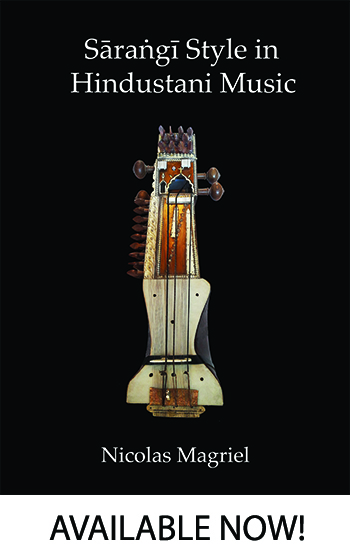
Ustad Hafizullah Khan was one of a handful of sarangi players who achieved All India Radio's "Top Class" ranking. He was a staff artist at AIR, New Delhi. We was the son of the influential singer Abdul Wahid Khan of the Kirana gharana who was the nephew of Abdul Karim Khan. As such Hafizullah was very concerned about broadcasting his ancestery—although his father had actually passed away when he was still a toddler. He learned sarangi from Ustad Habib Khan.
I managed to secure a short clip of Hafizullah Khan's playing, recorded at the Bhopal Sarangi Mela of 1989. The Gundecha Brothers who at that time were the keepers of the Bharat Bhavan archive, allowed me 1 minute per recording of several priceless recordings—including those of my own ustad, Abdul Latif Khan. Hafizullah Khan, for his part, was the one of the two sarangi players I met who would not let me video. This is remarkable as I was paying well at the time and as, though impressive, there was nothing in his technique or style that was unique and worthy of hiding. When I interviewed him, it was important to him to impress upon me that he was the true torchbearer of the Kirana gharana and the only sarangi player who was able to play complete vilambit khayal compositions. This was not in fact consistent with the findings of my research, and on listening to his playing, it seems his vilambit performances, like those of most sarangiyas, revolved around mukhras rather than around entire bandishes. Hafizullah Khan also believed that he had inherited the elaborate mirkhand-based barhat of Abdul Wahid Khan. Music is in the blood.
Luckily Daniel Neuman has very kindly shared his video of Hafizullah Khan's performance at the Bhopal Sarangi Mela. He plays rag Anekranjani—something like Maru Bihag in the lower tetrachord and Bhairav in the upper tetrachord. The sort of rag that exists just because it can.



